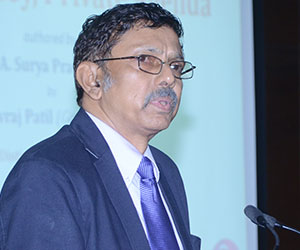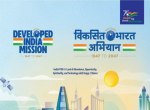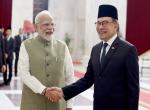Archaic rules and deep divisions along political lines within the Joint Parliamentary Committee (JPC) probing the controversial 2G Spectrum sale has affected the efficacy and sanctity of parliamentary investigations. While the controversy over the committee’s right to summon ministers has raised the question as to whether there is a need for a re-look at parliamentary practice and procedure, there can be no easy solutions to the problem posed by the political divide.
The rules that govern the working of the Lok Sabha and the Rajya Sabha, which were constituted 60 years ago, have largely been taken from the British Parliament. Over the years, some changes have been made keeping in mind the Indian ethos, the peculiarity of
representational politics and the demands that constituents make on their MPs in this country. However, these changes have been ad-hoc. There has never been a comprehensive review of parliamentary practices. As a result, many rules that came into the book decades ago, still dictate the way things are done, although much has changed in the world over these years.
For example, the rules governing the working of parliamentary committees do not permit them to summon the Prime Minister. Even the summoning of ministers is not permitted. Some committees however have managed to record the evidence of ministers after obtaining special permission from the Speaker of the Lok Sabha. Given the times we live in, one would think that these are unwanted hurdles placed before committees. Since transparency and accountability are the buzz words in democracies around the world today, rules that bar parliamentary committees from summoning and questioning the Prime Minister or a member of his Cabinet, do not make much sense at all.
It is this disjunction between archaic rules and contemporary democratic needs that is at the heart of the current conflict between ruling and opposition MPs within the JPC. Members belonging to the Bharatiya Janata Party (BJP), which is in opposition, want ministers to be summoned, while MPs from the ruling Congress Party oppose the idea. The Congress view is articulated by the JPC’s Chairman Mr. P.C.Chacko, who belongs to that party. He is of the view that the Prime Minister cannot be summoned by the JPC because “there is no precedent”. But, would this not be a changeless world if we did nothing that had no precedent? The other problem is the political divide within the committee. The Congress Party’s blind assertion of its majority in the JPC has put a question mark on the standing of parliamentary committees and struck a blow against the semblance of non-partisanship that characterised the work of these committees in the past.
The argument against summoning ministers is also not well founded. Parliament has had several JPCs in the past and there have been two such joint committees which have summoned ministers. For example, in 1992, parliament constituted a JPC to probe irregularities in securities and banking transactions. This committee, which was headed by Mr.Ram Niwas Mirdha, summoned many ministers and ex-ministers. It investigated irregularities and fraudulent manipulations in transactions relating to securities, shares, bonds and other financial instruments and the role of banks, stock exchanges, financial institutions and public sector undertakings in this scam. The committee also had to fix responsibility and to recommend safeguards to prevent such manipulation of the market in future. This JPC asked as many as ten ministers and ex-ministers to send in their responses to issues before the committee and this included Mr. Manmohan Singh and Mr. B.Shankaranand, ministers at that time and Mr. V.P.Singh, former Prime Minister and several former ministers - Yashwant Sinha, S.P.Malaviya, Madhu Dandavate, Chinta Mohan, Madhavrao Scindia, N.D.Tewari and P.Chidambaram. The committee also asked then Finance Minister Manmohan Singh and Health Minister B.Shankaranand to appear before it.
Again, in April, 2001 Parliament appointed another JPC to probe yet another stock market scam. It was asked to investigate market manipulations in all its ramifications including insider trading and to examine the role of banks, stock exchanges, brokers and promoters and regulatory authorities. The committee was expected to fix responsibility on individuals (and institutions) who had manipulated the market. The committee was also asked to suggest deterrent measures to punish wrong doers. This committee, headed by Mr.Prakash Mani Tripathi, submitted its report in December, 2002. This committee too decided to seek written information from Mr. Jaswant Singh and Mr. Yashwant Sinha, who were then ministers for finance and external affairs. Thereafter, it felt that
there were some points on which ‘further clarification” was needed and called both the ministers to tender evidence before it. This JPC also summoned two former Finance Ministers – Mr. Manmohan Singh and Mr. Chidambaram.
Interestingly, the terms of reference of both these JPCs said that they were to function within the ambit of the Lok Sabha’s Rules of Procedure relating to parliamentary committees, subject to the rider that “if the need arises” they could adopt a different procedure with the concurrence of the Speaker. When it comes to summoning ministers, an impediment that is often cited is Direction 99 of the Directions of the Speaker which is applicable to Financial Committees. This prohibits committees from calling ministers either to give evidence or for consultation. However, these two JPCs overcame this hurdle by seeking the Speaker’s permission to record the evidence of ministers.
This brings us to the question as to why parliamentary rules impede the summoning of ministers. Obviously, these rules were written in another age and time when ideas like transparency and accountability were unheard of. Should we persist with them in this day and age? Secondly, when the Constitution requires the Prime Minister to be responsible to the House of the People, why should he not be summoned by a committee of parliament?
The argument advanced by Mr. P.C.Chacko, Chairman of the JPC probing the 2G Spectrum Scam, that decisions have to be taken in the committee on the basis of majority vote, is equally preposterous. Barring exceptions, parliamentary committees have always functioned in a non-partisan environment. If committees work on the majority-minority principle, independent parliamentary investigations will become impossible, because the ruling coalition or party always commands a majority in a committee of parliament.
Over the years, because of the deterioration in the internal security environment, the Prime Minister is encircled by the Special Protection Group and completely cut off from the people. What these archaic rules of parliament are doing is to cut him off from parliament as well. Similarly, one wonders why the Finance Minister or any other minister needs to be shielded from scrutiny. Do they lack the gumption or the intellectual wherewithal to face a parliamentary committee and explain the decisions that they take? If indeed they lack the confidence, why do they continue in office? And, why should parliamentary rules go to their rescue?
There is another good reason why the Prime Minister and other ministers must pick up courage to face parliamentary committees – the proceedings are in camera. In India, since parliamentary committees work within closed doors, away from the glare of publicity, there is no fear of the Prime Minister being subjected to cross examination under the harsh glare of television cameras. Even if that be so, why run away from it if you are confident of the manner in which you run the government? When American presidential hopefuls have face-to-face debates on all issues affecting the people, why do we need rules and norms to shield our prime minister from our MPs?
The reluctance of Mr. Manmohan Singh and Mr. Chidambaram to face the JPC probing the 2G Spectrum Scam is inexplicable for yet another reason, namely that they are in a sense, JPC experts in this government, having tendered evidence before the JPCs constituted in 1992 and 2001. These two JPCs not only recorded the evidence of ex-ministers but also of ministers in the Union Government at that time. But, now both of
them have developed cold feet.
In the light of this evidence, both the Prime Minister and Finance Minister ought to have volunteered to appear before the present JPC, rather than hide behind some antiquated rules and even jeopardize the committee’s working. But, we should not acquiesce in their reticence. The time has come from Parliament to take a fresh look at its rules and weed out all those provisions that militate against the principle of accountability.
Published Date: 8th November 2012, Image Courtesy: india.gov.in










Post new comment